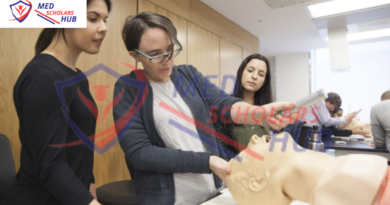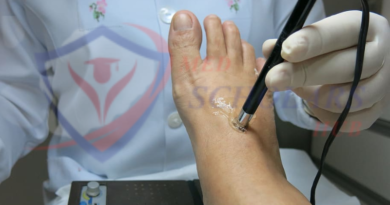10 Common Medical School Interview Questions
The medical school interview is a crucial step in the journey towards becoming a physician. It is an opportunity for applicants to showcase their passion for medicine, demonstrate their suitability for the profession, and make a lasting impression on admissions committees. While the format and specific questions may vary across institutions, there are several common themes that consistently emerge in medical school interviews.

This comprehensive guide will delve into these frequently asked questions, providing insights and strategies for crafting compelling responses that effectively convey your strengths and aspirations.
Background and Motivation
1. Tell me about yourself.
This seemingly straightforward question serves as an icebreaker and allows you to introduce yourself in a way that highlights your relevant experiences, motivations, and aspirations for a career in medicine. Avoid generic or rehearsed responses; instead, focus on anecdotes and experiences that showcase your personal qualities and connection to medicine.
2. Why do you want to be a doctor?
Delve into the deeper reasons that drive your desire to pursue a medical career. Articulate what inspires you about the profession, such as the ability to alleviate suffering, make a positive impact on people’s lives, or contribute to scientific advancements in healthcare.
3. What are your strengths and weaknesses as a potential doctor?
Self-awareness is highly valued by admissions committees. Acknowledge your strengths, such as empathy, communication skills, or problem-solving abilities, and provide concrete examples of how you have applied them. As for weaknesses, address them with honesty and demonstrate how you are actively working to improve.
Interesting Article: Major Degrees in Medical Field
Academic and Professional Experiences
4. What are your most significant academic achievements?
Highlight your most notable academic accomplishments, such as achieving high grades, earning awards or scholarships, or conducting research. Explain the significance of these achievements and how they have prepared you for the rigors of medical school.
5. Describe your experiences in clinical settings.
Share your experiences in healthcare settings, whether it’s volunteering at hospitals, shadowing physicians, or working as a healthcare aide. Emphasize the skills and insights you gained from these experiences, such as patient interaction, teamwork, and ethical considerations.
6. What are your extracurricular activities and how have they contributed to your personal growth?
Engagements outside of academics demonstrate your well-roundedness and commitment to personal development. Discuss extracurricular activities that align with your interests and have contributed to your skills, such as leadership, communication, or community service.
Ethical and Professional Considerations
7. How would you handle a situation where you disagree with a colleague’s treatment plan?
Admissions committees seek individuals who can navigate ethical dilemmas and maintain professionalism in challenging situations. Describe your approach to resolving disagreements, emphasizing open communication, respectful dialogue, and a focus on patient welfare.
8. What are your thoughts on the current state of healthcare in the United States?
Demonstrate your awareness of current healthcare issues, such as access to care, disparities in health outcomes, or advancements in medical technology. Share your perspectives on these challenges and how you envision contributing to positive change.
9. How do you plan to balance your personal and professional life as a physician?
Medical school and the practice of medicine demand a significant commitment of time and energy. Articulate your strategies for maintaining a healthy work-life balance, such as prioritizing self-care, seeking support from colleagues, and engaging in activities that bring you joy.
Preparation and Conclusion
10. What questions do you have for us?
Preparing thoughtful questions about the medical school, its curriculum, or the surrounding community demonstrates your genuine interest and engagement in the program. Avoid generic questions easily answered on the program’s website.

Final Words
By thoroughly preparing for common medical school interview questions, you can confidently showcase your strengths, motivations, and suitability for a career in medicine. Remember, the interview is a two-way exchange, so approach it with enthusiasm and a genuine desire to learn more about the institution and the opportunities it offers. Your preparation, combined with your passion and dedication, will leave a lasting impression on the admissions committee.




